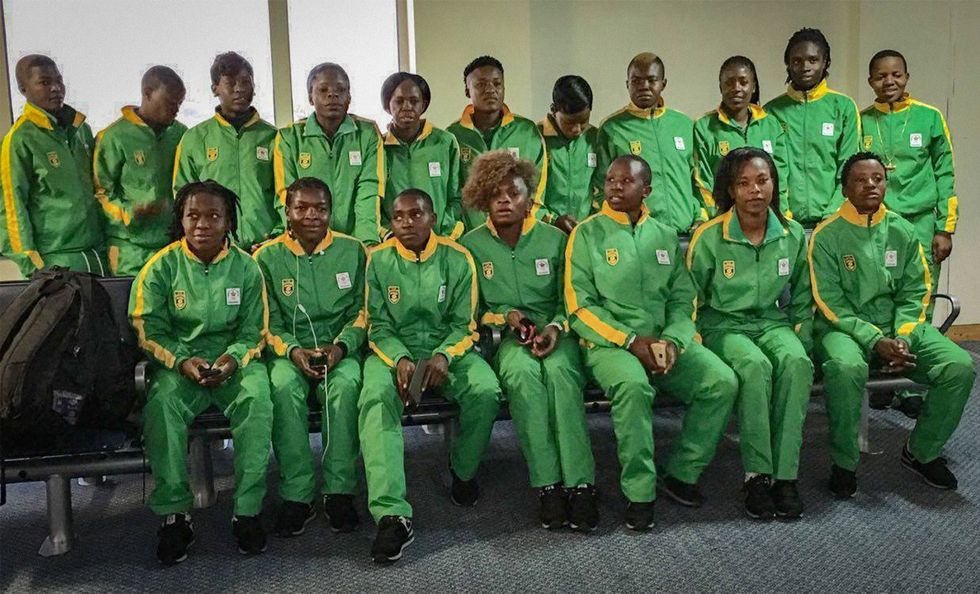Even with South Africa and Zimbabwe’s Olympic Appearances, African Women’s Football Still Has Ways to Go
With FIFA’s first African female Secretary General, and South Africa and Zimbabwe’s presence at the Olympics, African women’s football is on the rise.

As in the rest of the world, African football has long been dominated by men—and the proof’s in the ticket sales. In Rio, the top tickets for the women’s football quarterfinal will cost 100 reals, while football fans seize the best seats for the men’s quarterfinal for 200 reals. Despite greater attention to gender inequities in football—partially fueled by a federal wage complaint filed by female American players—disparities on the African pitch fail to attract the same level of attention.
As in the rest of the world, African football has long been dominated by men—and the proof’s in the ticket sales. In Rio, the top tickets for the women’s football quarterfinal will cost 100 reals, while football fans seize the best seats for the men’s quarterfinal for 200 reals. Despite greater attention to gender inequities in football—partially fueled by a federal wage complaint filed by female American players—disparities on the African pitch fail to attract the same level of attention.
With African women’s football often relegated to the background, the appearance of Banyana Banyana (South Africa) and the Mighty Warriors (Zimbabwe) at the Rio Olympic Games is huge. Although both teams lost during the first and second stages of the matches, their presence at the games is an achievement for a region where many countries still lack proper women’s leagues.
In South Africa, home to one of the continent’s best-funded networks of football clubs, women’s football is guaranteed a mere eight percent of the South African Football Association budget. There is no professional league for South African female footballers despite the fact that Banyana Banyana won more matches than men’s team Bafana Bafana.
According to Fran Hilton Smith, the head of women's football at the South African Football Association, “[It is difficult for women to compete because] it's not something that brings in any income, it doesn't attract big sponsors, it's a costly exercise and, especially in Africa to travel to play international matches is outrageously expensive.”
Organized women’s football is a relatively new phenomenon on the continent where about only 30 countries have national-level women’s football associations. Continental championship games began in 1991 when the Confederation of African Football began sponsoring the Africa Women Cup of Nations (AWCN)—nearly 35 years after the start of the men’s competition.
Even in the case of Nigeria’s women’s team, who has a history of high performance and a record nine AWCN wins, compensation is poor. After qualifying for the Cup, the Nigeria Football Federation handed the players 10,000 naira ($50) each. The Super Eagles, the men’s team, in contrast receive $4,000 for a draw and $5,000 for a win. With paltry pay for their past victories, there is little incentive to participate. While Nigeria has traditionally dominated the AWCN, the Super Falcons failed to qualify for the 2016 Rio Olympics because of club engagements and injuries.
In a multi-billion dollar industry, these kinds of disparities are a big deal. For exceptional African players, football can be an opportunity to enhance social mobility through access to lucrative contracts and scholarships. In 1999, Nigerian forward Mercy Akide’s performance at the quarterfinals of the FIFA Women’s World Cup lead to a 4-year scholarship to Milligan College in Tennessee alongside teammate Florence Omagbemi. Akide went on to join American professional team San Diego Spirit and joined a FIFA Women’s All-Star team in 2004. Akide’s exceptional success remains near impossible for African women without sufficient sponsorship deals, equipment, coaches, media coverage, and, most importantly, leagues.
In recent times, some African women footballers, such as BBC Women's Footballer of the Year Gaëlle Enganamouit of Cameroon, have enjoyed considerable success in Scandinavia, the world leader in the development of women's soccer.
Akide and Enganamouit’s careers as high-flying professional African women footballers are the exception rather than the rule; however, as women’s teams gain greater exposure with high-level football competitions in this age of social media, more African women may be encouraged to take to the pitch. Greater international competition creates much-needed opportunities to improve performance against top-quality opponents—and provides much-needed exposure.
With the recent appointment of Fatma Samba Diouf Samoura as FIFA’s first female, non-European Secretary General, and South Africa and Zimbabwe’s spirited play at this year’s Olympic Games, African women’s football may be poised for greater visibility.

